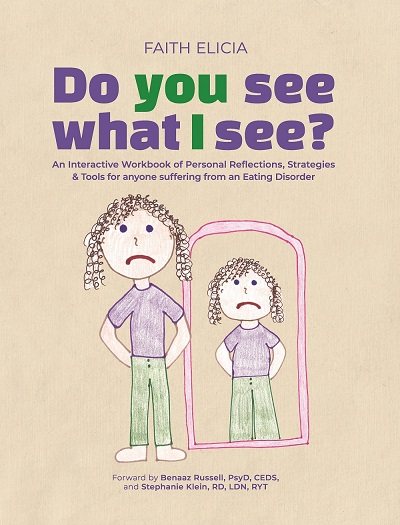
Books like Do You See What I See? by recent nonfiction author and romantic novelist Faith Elicia are noteworthy not because of their topical content, but rather because of their structural framing and the profile of the writers behind them. Elicia herself has a firm grounding, both personally and professionally, in her aforementioned work positions as well as her featured role with her husband’s medical practice.
That makes her bare and unflattering accounts of suffering with an eating disorder all the more affecting, and all the more potent as humanized examples of how to deal with complications brought on by extensive mental, and physical factors. Elicia never insults the reader’s intelligence by pretending to have all the answers, or by showering them with reassurances that everything will turn out perfectly in the end. She also doesn’t shy away from the dark pitfalls one could easily fall into should such disorders not get proper treatment.
ABOUT THE AUTHOR: https://www.faithelicia.com/
The shady realism could threaten to overwhelm, but this is balanced out by Elicia keeping things firmly on a track that emphasizes her own recovery. And specifically within that vein, the precepts and facets she believes the reader can take with them on their own, respective journey – navigating the trails that define one’s mental and physical health. “…the practice of acceptance (can) (come) into play,” she writes. “The world won’t fall apart if a bed is left unmade, laundry remains in a basket, or dirty dishes hang out in the sink. These are also the moments when I have to stop trying to do it all and ask for help. Doing so translates into all aspects of my life. I can’t assume or expect others to volunteer their services. They are busy living their lives. I have to express my wishes.”
By adding a sort of everyday, almost matter-of-fact quality to the otherwise concerning proceedings, Elicia succeeds in making such disorders a fact of life, not a fact in spite of life. The gradual shifting of the public consciousness towards normalizing mental and neurophysical disorders is just starting to bridge the gulf. But a core reason for such exponential progress is tones and attitudes set by people like Elicia. People who are the first to emphasize their accomplishments and their struggles within the same sentence. “…feelings are neither good nor bad. It’s how we perceive, cope, and react to them that makes us give them a good or bad label,” she states. “What would it take for you to be able to do so?”
AMAZON: https://www.amazon.com/Do-You-See-What-ebook/dp/B097TSK19Q
By making the writing style informal and inviting, she’s able to draw anyone reading a copy of the book closer – never running the risk of alienating them because of obscure terminology, or removed observational tendencies. Elicia is a person first, and someone writing from a place of informed experience second. The results honestly can change lives. If the conversation about mental and physical health can truly begin to permeate the walls of so-called ‘polite society’ once and for all, then such an effect can have ripples across impossibly wide margins. It’s vital that these kind of articulations continue, and that people across all walks of life can see such struggles are shared by competent and capable individuals regardless of background or status. As for the individual themselves, Elicia writes that they too play a role in such a proposed outcome. It’s about learning to love one’s self unconditionally, she writes.
That sort of unconditional love will help one navigate the otherwise uncertain aspects of what is plaguing them. In the end, all one has is the power to believe in themselves. It’s just about mustering the courage in healthy ways to embrace that.
Kendall Townsend



























